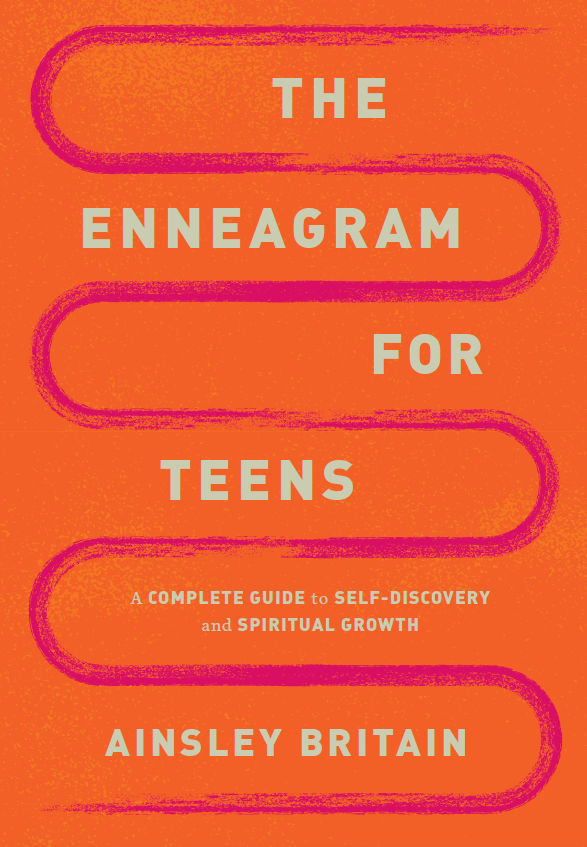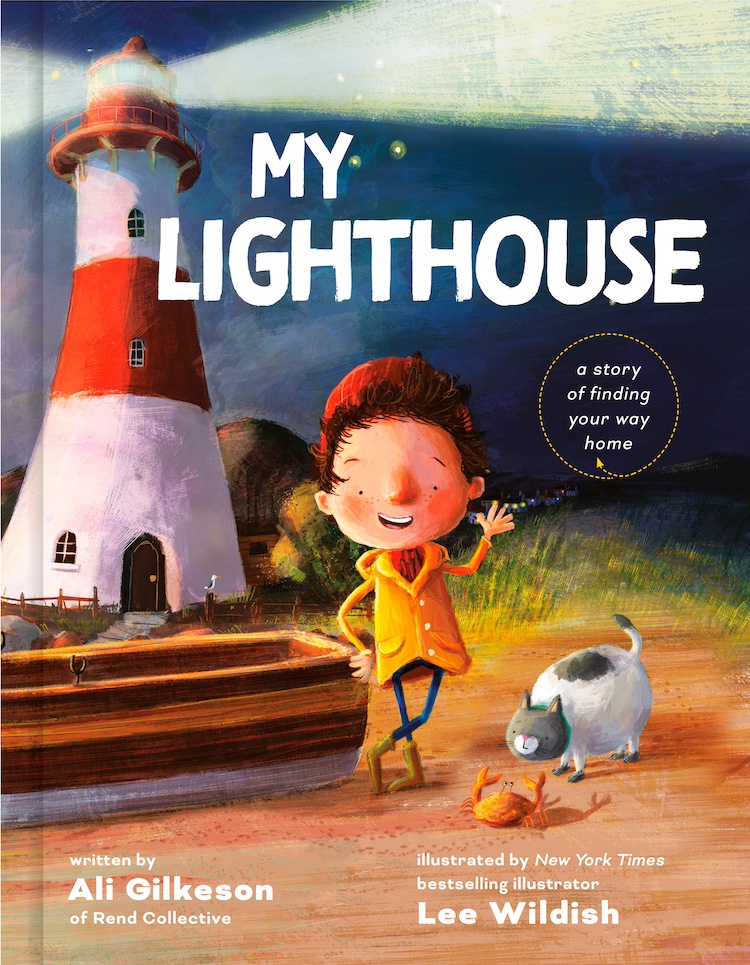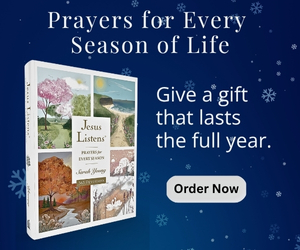To Be Loved Is To Be Known: Ainsley Britain & Ali Gilkeson

Ainsley Britain: Stay the course, stay connected with the Lord, and stay humble as you discover more about yourself. Give yourself permission to grow. Give yourself permission to change, but do not put yourself in the box whenever it comes to the Enneagram. Focus on the good. Focus on the beautiful things that God equipped you with in this life to impact and influence other people towards the Lord.
To Be Loved Is To Be Known: Ainsley Britain & Ali Gilkeson – Episode #419
Narrator: Welcome to the Jesus Calling Podcast. If there is one thing we all desire as human beings, it is to be known—truly, deeply known—and loved just as we are. Psalm 139 says “You have searched me, Lord, and you know me… you are familiar with all my ways,” reminding us that we can experience the joy of being known to our core when we look to the Lord.
Ainsley Britain is an Enneagram coach who delves into how we were individually and uniquely made by God, and how we can apply the knowledge of how we were created to our relationships with others—especially while navigating the challenges of high school.
Ali Gilkeson is a member of the beloved band Rend Collective, which was initially designed as a welcoming place for people who didn’t always feel like they belonged in the church. Through recognizing our individual roles in life, Ali shares how a raw, honest relationship with God can help us find our way home.
Let’s begin with Ainsley’s story.
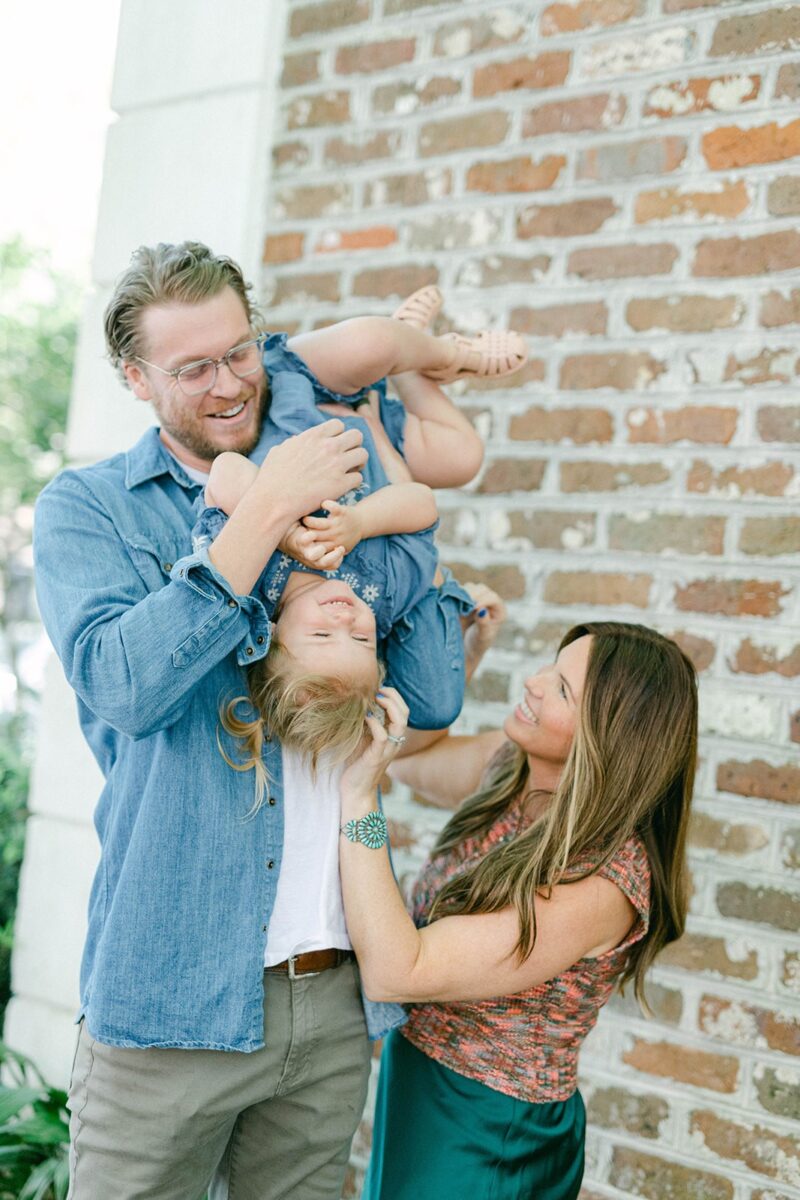
Ainsley Britain: My name is Ainsley Britain and I am an author, speaker, Enneagram coach, but most importantly, a mom and a wife. I love what I do, and I love pointing people—specifically young adults—to the Lord and helping them understand their identity in Christ.
I grew up in Lafayette, Louisiana. South Louisiana is 100% a culture and crew of its own. There’s always an excuse to throw a party or have all your friends and family come over, whether it’s a crawfish boil or all the weddings and showers. Or you don’t need a reason at all, you just call up everybody and everybody comes over. So I grew up with a lot of people around, a lot of different personalities. And as a teenager, oh, gosh, I think that I was always probably the loudest person in the room. I was definitely not shy, but I always had this draw to the Lord.
Ainsley Discovers the Enneagram
What first sparked my interest in becoming an Enneagram coach was actually a relationship that I was in, a toxic, kind of abusive relationship in college. We ended up breaking up. And then I just was trying to figure out what happened, what went wrong, what was his problem, what was my problem, what were these things, right? What were these answers that I was looking for?
And my friend had just gone through a breakup as well. She was like, “Hey, I want you to just check out this book.” And she handed me an Enneagram book. I was immediately enamored by it. I was so interested in it, and it honestly gave me the closure that I needed, because it explained to me how God made me and why He made me certain ways. So I was looking for answers about myself to the Lord versus to that person. And it was so healing for me to be like, “Okay, Lord, this is between me and you. The healing doesn’t come from the closure from the other person. The healing comes from you.”
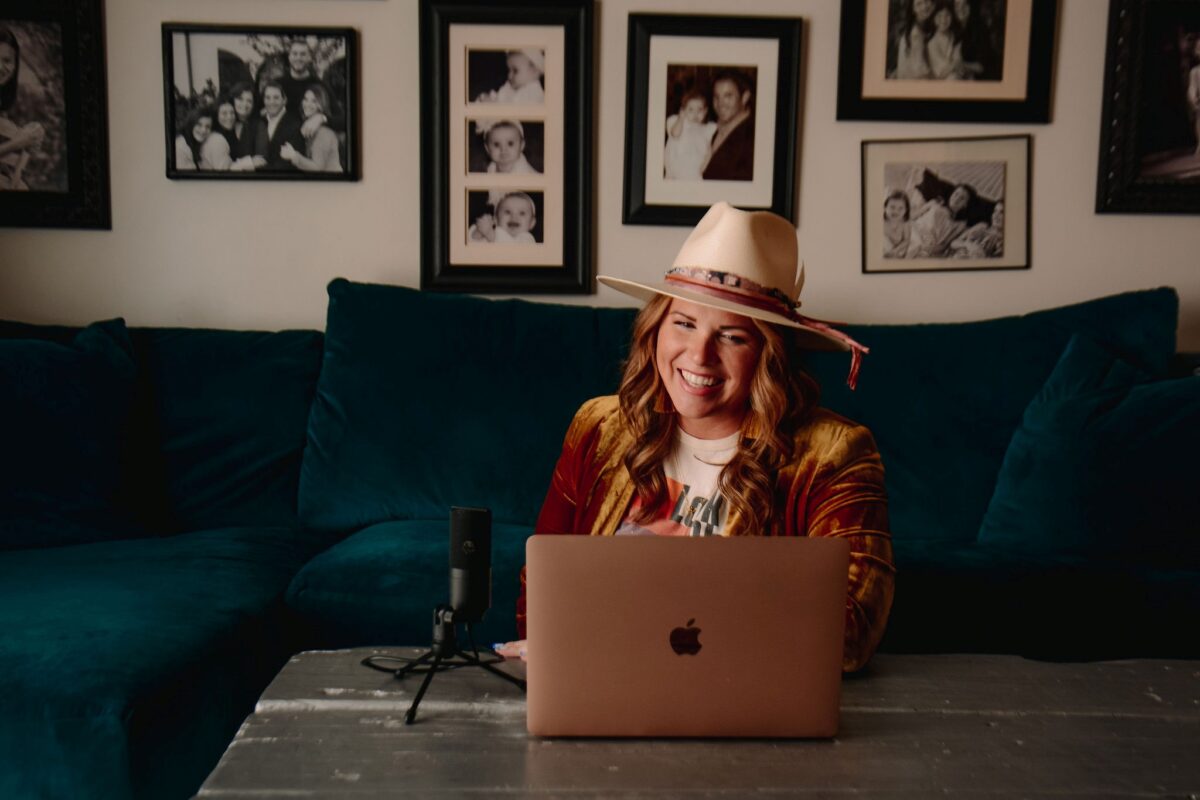
I got a job in Houston as a high school minister, and during my time there, I’m learning about these kids, I’m learning about my coworkers, and then just simultaneously learning more about the Enneagram because I never stopped being interested in it. And I was like, You know what? I want to become a coach. I think I could totally use this in our workplace, within the lives of these kids, within the lives of the parents, and building harmony and building understanding and empathy across all of these relationships.
Applying Enneagram Principles to Life as a Teen
One of the things I love about the Enneagram, specifically how it relates to teens, is that not only do you understand your strengths and weaknesses, but you understand the motivations behind your actions. So whenever you do something or whenever someone offends you or hurts your feelings, you can really understand why that happened, why you had this emotional reaction. And I think it does allow you to grow in empathy and understanding with one another.
“One of the things I love about the Enneagram, specifically how it relates to teens, is that not only do you understand your strengths and weaknesses, but you understand the motivations behind your actions.” – Ainsley Britain
I am an Enneagram type two wing three, but man, if I just had some tools of self-awareness when I was a teenager, I just think I could have been closer to the Lord, closer to my family, closer to my friends in a more healthy way. I think I would have been able to communicate better. I think I would have understood my motivations and my emotions and all of those things a little bit earlier.
When it comes to uncovering our best self, I think it allows us to give ourselves grace in areas that we previously didn’t understand. The thing is, is that as a type two, I will do anything for anyone. But if I don’t check the motive behind that action, it can be unhealthy. You’re thinking, Oh, I’m doing all of these nice things. You just automatically think that’s always good. But if your motive is for selfish reasons or pride or something like that, then it’s not out of the right heart and then that can build up resentment. Then you can start kind of pushing that person away that you were just taking the shirt off of your back for. And not only does that hurt your heart, but it confuses theirs because they’re like, “Why are you suddenly mad at me?”
When other people see your type and understand your type, they can say, “Hey, I need to make sure that my friend who’s a two is not stretched too thin because they can’t say no.” Knowing if I have a friend who’s a nine, I’m just going to make sure that if there’s any conflict, that I approach it in a certain way versus if I have a friend that’s an eight who is not going to be bothered by it. But my nine friend is going to be very bothered by conflict, it’s going to weigh heavy on them. They’re going to try to avoid it. So knowing my friend’s a type nine, I can be very gentle with my approach and say, “Hey, this relationship is not at risk here. I just want to talk through this thing in our lives.”
Using the Enneagram to Navigate Peer Pressure
When you’re dealing with peer pressure, there’s always a root desire, like, I want to go along with this because I don’t want to have conflict or I want to go along with this because I want to be accepted for who I am, or I want to go along with this because XYZ. And there’s different types that might believe different things. You also might have the opposite. I don’t want to go along with this just because they want me to go along with this, and that might cause some ripples in and of itself, right? But if we can have the knowledge and understanding that all of the root things and the root fears, the root motivations, the root trauma, all of these wounding childhood messages can be healed with the Lord. And I believe that the Enneagram is just that helpful tool to kind of uncover that.
“If we can have the knowledge and understanding that all of the root fears, the root motivations, the root trauma, all of these wounding childhood messages can be healed with the Lord. And I believe that the Enneagram is just that helpful tool to kind of uncover that.” – Ainsley Britain
But the real healing is with your relationship with the Lord. It’s with your communication with God. It’s with letting God into your life, into your heart, and saying, “Hey, Lord, I see that I’m weak in these areas. Can you teach me what to do to heal and grow closer to you? Can you refine me? Can you bring that purifying fire and show me how I can be the best version of myself, how I can discover more about myself—even if that means the hard parts—and grow closer to you?” Because that is where the healing happens.
A lot of teenagers would just automatically not like someone upon meeting them. And then you’re kind of done, right? You don’t even give a relationship a chance to become a friendship. And I think the Enneagram kind of brings it to a level of even playing ground, if that makes sense. Like, we’re all flawed, and if we can just understand each other, one another’s types, we can speak life into one another. So instead of pointing out things that we don’t like in each other, I wonder if we could look at those situations through a different lens and give each other grace and give each other room to grow and give each other the words that we need to hear to become the best version of ourselves.
So, for example, if I have an Enneagram three friend, well, they’re The Achiever. They are going to be making their grades, doing the sports, and being top of the class, achieving, achieving, achieving. But they’re worried about who they are on the inside. Right? Like, Who am I really apart from all of these accolades? I would like to think that I would go to my Enneagram three friend and really encourage their character so they know that while these accomplishments are amazing and honorable and they’re doing great, what I really love and care about is who they are as a person, what is in their heart, and that I love them as a friend and want to encourage them in who they are versus what they can accomplish. And I think that is what will set them up for success, not only in their relationships, not only in their inner dialog, but in their self-awareness, spiritual growth, and understanding of why God made them the way that He did.
Knowing Ourselves to Know God Better
Jesus Calling is usually one of the first books or resources that I point people to, whether they are in the beginning of their faith journey, whether they’re just in a valley, whether they are on a mountaintop, and they just want to keep going. It’s such deep but concise content that leads you straight to the heart of God. I have the app. I have the book. I now have the Jesus Listens book and love it. I think it’s an amazing resource.
I think it’s so important to connect with God daily because just like any of your other relationships, that’s where the depth is. That is where the intimacy is. It’s how you maintain and foster a friendship with the Lord. Not only do we get FOMO (fear of missing out) from being in His presence, but He gets FOMO from us. He doesn’t want to be apart from us. The God of the universe wants to commune with us and be near us. And that’s such an honor.
“I think it’s so important to connect with God daily because just like any of your other relationships, that’s where the depth is. That is where the intimacy is. It’s how you maintain and foster a friendship with the Lord.” – Ainsley Britain
Jesus Listens, December 12th:
My Jesus,
You designed me to live in union with You. I’m thankful that this union does not negate who I am. On the contrary, it makes me more fully myself. I’ve discovered that when I try to live independently of You—even for short periods of time—I experience emptiness and dissatisfaction. But when I walk in the Light of Your Presence, You bless me with deep, satisfying Joy. I delight in praising You—exulting in Your righteousness.
Help me to find fulfillment in living close to You, yielding to Your purposes for me. Sometimes You lead me along paths that feel alien to me. At such times I need to cling to You—trusting that You know what You’re doing. When I follow You wholeheartedly, I can discover facets of myself that were previously hidden.
You know me intimately—far better than I know myself. In union with You, I am complete. In closeness to You, I am transformed more and more into the one You created me to be.
In Your beautiful, righteous Name,
Amen
Narrator: To learn more about Ainsley and her work, please visit www.ainsleybritain.com. And be sure to check out her latest book, The Enneagram for Teens: A Complete Guide to Self-Discovery and Spiritual Growth, wherever you buy books.
Stay tuned to Ali Gilkeson’s story after a brief message.
Order Reba McEntire’s Not That Fancy
The best things in life are really not that fancy. Superstar Reba McEntire’s lifestyle book Not That Fancy: Simple Lessons on Living, Loving, Eating, and Dusting Off Your Boots invites readers to get back to the basics of life: fun, food, friends, family and faith. Not That Fancy features never-before-told stories, delicious recipes, and some of the Oklahoma-style truths that guide her life. Plus, photographs from Reba’s childhood, her career and personal life. Order your copy wherever you buy books, and be sure to check out the audiobook version read by Reba herself!
Our next guest is performer Ali Gilkeson from the band Rend Collective, who have been touring all over the world playing music, sharing stories, and worshiping the Lord while carving out a space for people who don’t feel like they have a place in the church. Ali shares about the process of writing songs that speak to our hardest moments and unspoken fears, and what raw, authentic worship looks like.
Ali Gilkeson: My name is Ali Gilkeson. I hail from Northern Ireland. And for the past fourteen years, I’ve been part of a band called Rend Collective, and we’ve been touring America and touring the world.
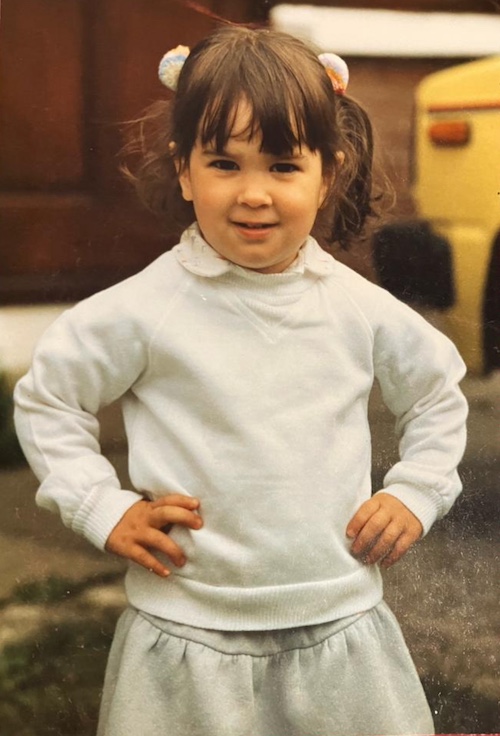
Growing up in Northern Ireland when I did, it was still a time of a lot of conflict. Going into the city, like, your cars were searched for bombs or you would see guards walking around with guns and things. It was just part of your normal life. You didn’t think anything of it. It was just always a big part of our culture to try and be like, “You know what? Everything may be going wrong, but we’re going to really push for the joy and just find a moment to smile.” Life was very simple, we played outside a lot. I was always really involved in church a lot. My parents brought me to church, gosh, maybe like six times a week. We were always really involved, and I just loved it. There was such a wonderful environment, and the people are just so beautiful and fun and [we had] lots of great chats and great stories and great music and great songs.
The Beginnings of Rend Collective
Rend [Collective] did start as a church movement. It was really for people in their twenties and thirties who kind of felt that in the church, there were a lot of things for teenagers, you know, there was a youth group and a lot of things for people with families and young kids. But that’s sort of that age where you’re trying to figure out who you are. You’ve really just started a career. Maybe you’ve just moved to a new city, like, what was there for you? And so we started Rend Collective as a space for that.
You know, we didn’t even have chairs in the hall. People sat on the floor and we brought lamps in and we sang along to different music. There’s kind of a lot of flashiness in church, like if you have a huge praise band, if you have lights, if you have a countdown at the start of a service, wow. You know? And so we wanted just to take that all away and be like, “All we care about is connection with God and connection with each other in a real, authentic way.” That’s what we push for.
“All we care about is connection with God and connection with each other in a real, authentic way.” – Ali Gilkeson
And then eventually, as we were seeing such an amazing impact with this church movement, we decided we should maybe start writing our own songs for this community. Rend Collective was about writing songs for that community, giving voice and words to what we were seeing and what we were experiencing. We were also really focused on like, “Okay, let’s write songs for when you’re struggling in your faith. Let’s write songs when you don’t feel like you’re getting an answer to your prayer. Let’s write songs for when you’re in the middle of lament.” We wanted to create music that was like when you feel like you’ve got nothing left, when you feel like, I just do not have the words, that this song could be of service to you. This song could be your prayer. This song could be your cry for help. This song could be your connection point to God that will give you that sense of peace, that sense of hope, that sense of belonging.
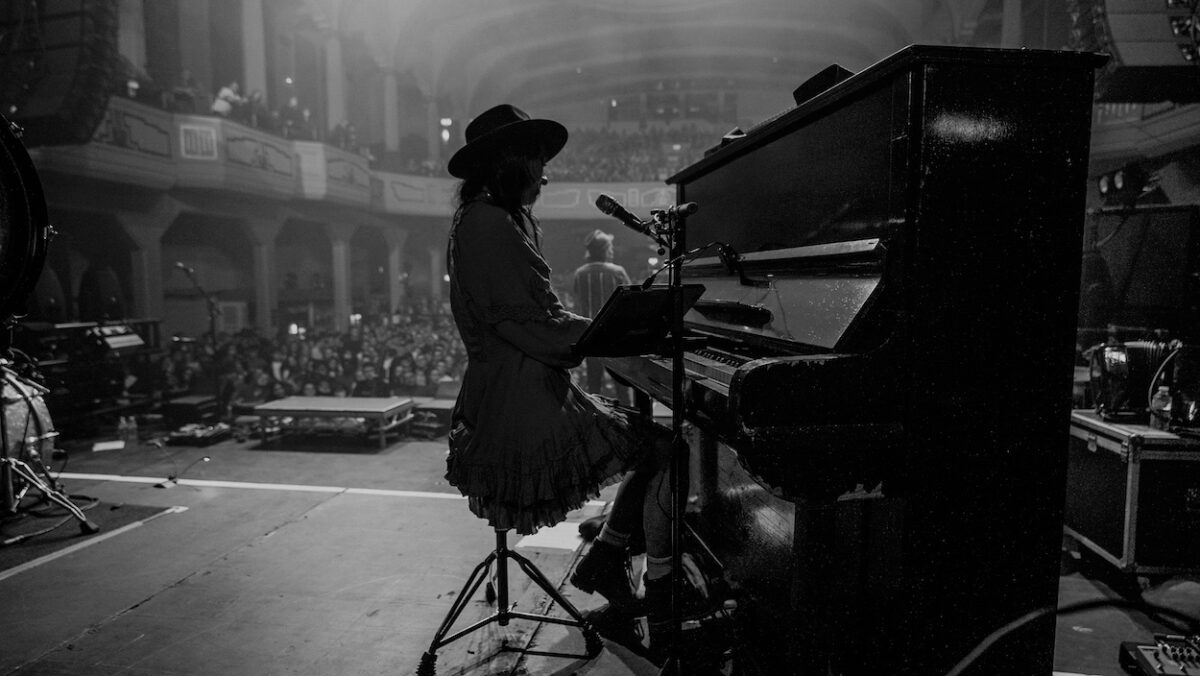
We would start touring again around Ireland and the U.K. doing different worship conferences or different shows, and then that expanded to Europe and we would go all over Europe. And then I remember us praying about, “Oh, well, what if we went to America? What would that be like?” We were like, “Oh, it’s so scary. It’s so big, how would we ever get there?” And just as we sort of began praying about that, literally two weeks later, Chris Tomlin emailed and was like, “Hey, I’m going on a national American tour with Louie Giglio. Would you like to come and be a support band?” And that’s kind of where things started really taking off.
The Authentic Heart of Worship
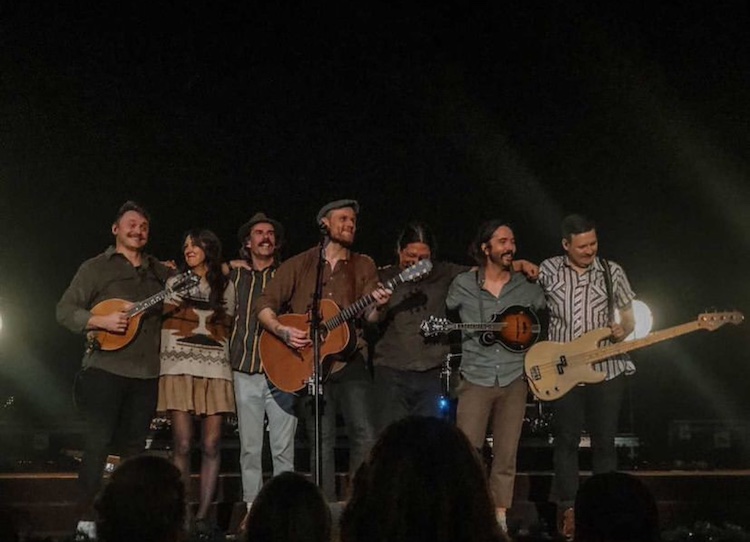
Rend Collective has always been—and we’ve said from the very start—more of a family than a band and always more of a ministry than a performance. Authentic worship isn’t really even about the sound of a song. It’s about the state of your heart, you know? You could be singing the most beautifully written, crafted song in the world, but if your heart’s not in the right place, then it’s not authentic worship. Authentic worship has to come from within. And sometimes you can have the most authentic worship experience while singing the same simple line over and over again.
“Authentic worship isn’t really even about the sound of a song. It’s about the state of your heart.” – Ali Gilkeson

“My Lighthouse,” when we kind of released it, it was one of those things we had no idea [what was coming]. We first played it at a conference in the U.K. called Sole Survivor. And we just saw these kids just go on fire for this. So we were like, “Oh my goodness, they’re really connecting with it. They’re really loving it.” And then just from there we would see all these videos coming in and it would be like, “Oh, my kid loves this.” And then you get emails like, “Hey, we’re in a hospital,” or, “A friend’s really struggling.” You know, people in cancer wards. And then we would get videos or emails from prisons of these prisoners connecting with the song. And we were like, “This is such a huge spectrum of people who are loving this song, feel that they’re connecting with it, and it’s really speaking.” I’m just so grateful.
Connecting to What’s True
It’s so important today that you’re connecting with what’s true. I feel like particularly with prayer, for me, I feel most connected to God when I’m in nature. And so I always make a point of getting out there and being like, “Okay, what are we saying today?” I am reminded who God says I am and what I proclaim about Him, and finding the moments to be thankful for what we have, thankful for who we are. Even in the most hard circumstances, the discipline of gratitude is huge. If you come and you know who you are and you believe what God has said about you, then that creates a whole different mindset to try and go out there and change the world.
Jesus Listens, November 28th:
Dear Jesus,
You’ve been showing me that thankfulness takes the sting out of adversity. Moreover, the Bible instructs me to give thanks for everything. I see an element of mystery in this transaction: I give You thanks, regardless of my feelings, and You give me Joy, regardless of my circumstances. This is a spiritual act of obedience—at times, blind obedience. Thanking You for heartrending hardships can seem irrational or even impossible. But I’ve learned that when I obey You in this way, I am blessed, even though difficulties remain.
Thankfulness opens my heart to Your Presence and my mind to Your thoughts. I may still be in the same place—facing the same set of circumstances—but it’s as if a light has been switched on, enabling me to see from Your perspective more clearly. It is this Light of Your Presence that removes the sting from adversity. Help me, Lord, to walk in the Light with You more and more!
In Your luminous Name,
Amen
Narrator: To learn more about Ali Gilkeson and Rend Collective, follow them on social media, and find their music on your favorite platform. And be sure to check out Ali’s new children’s book, My Lighthouse, at your favorite retailer.
If you’d like to hear more stories about being seen and known by God, check out our interview with Steve Wariner.
Next week: Sarah Kroger
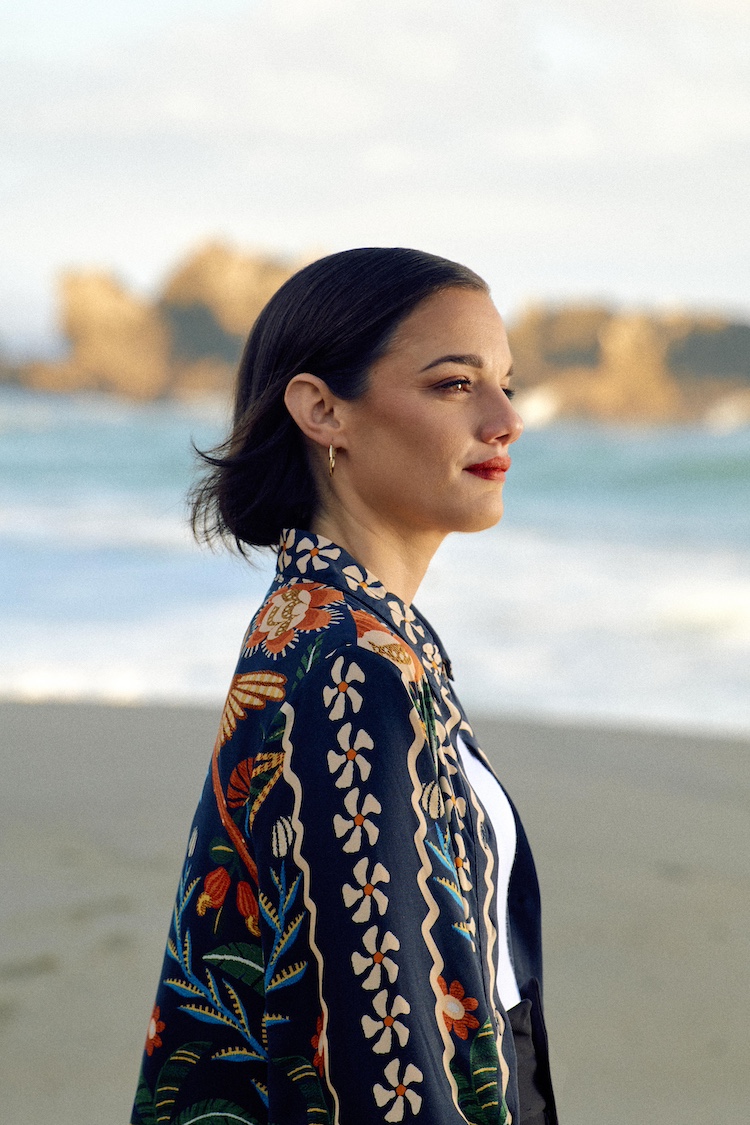
Next time on the Jesus Calling Podcast, we’ll hear from Dove Award-nominated artist and worship leader Sarah Kroger. Sarah shares how worship became her language with God, allowing her to open her heart and reach people from a variety of cultures all over the world.
Sarah Kroger: I felt like God was lovingly tapping me on the shoulder and just saying, “Sarah, I gave you this gift not just for yourself. I gave you this for my kingdom. I gave you this gift for my glory. And by you hiding it, it’s not doing anyone any favors. So will you step out in faith? Will you say yes to me?”
